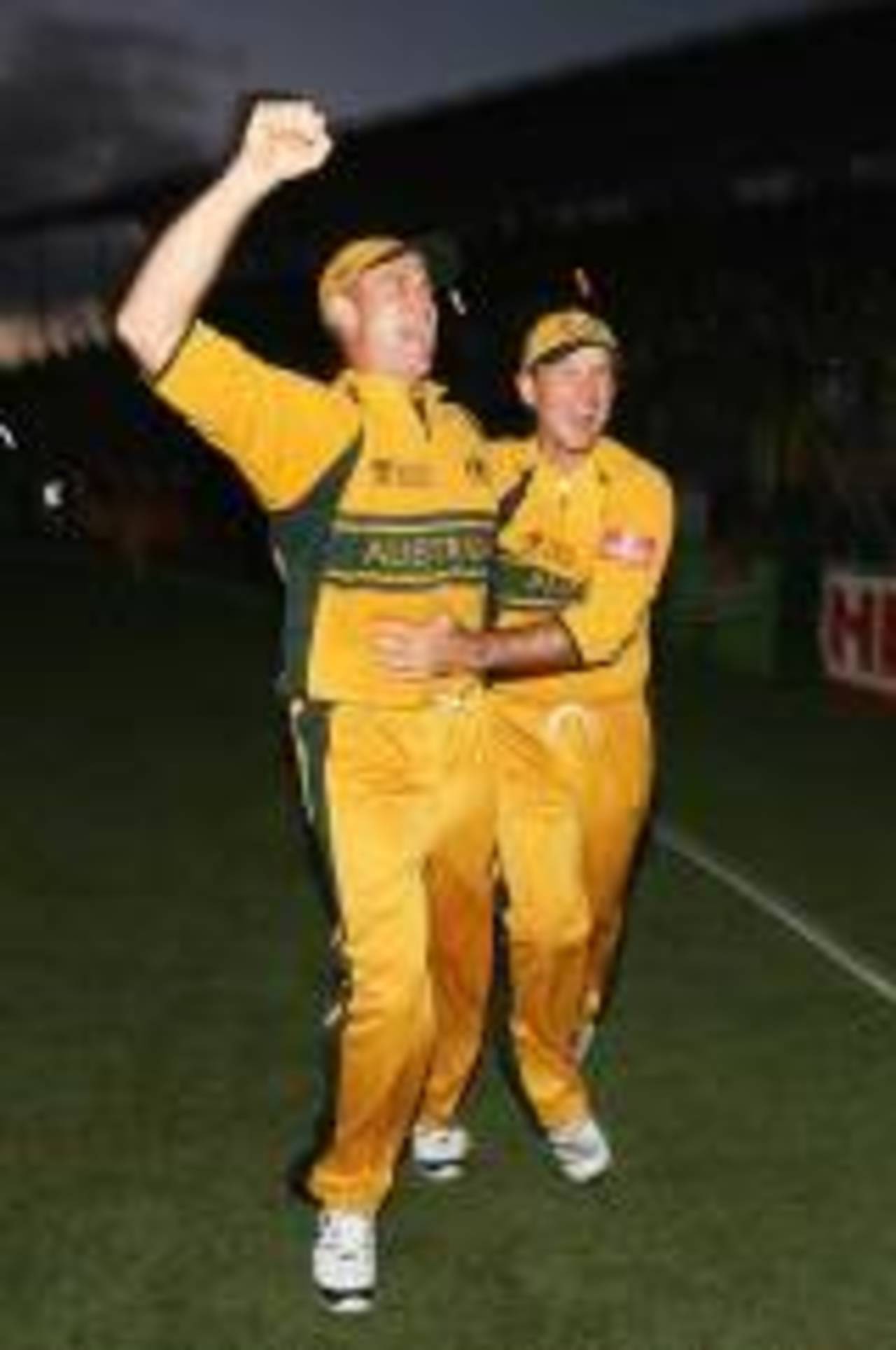Heads should roll for final farce
While Malcolm Speed steadfastly continues to insist that the World Cup was a success – and as he seems to judge most things in terms of revenue, he may be right – the media is united in its condemnation of the event, with the farcical scenes at
Martin Williamson
25-Feb-2013

Getty Images
While Malcolm Speed steadfastly continues to insist that the World Cup was a success – and as he seems to judge most things in terms of revenue, he may be right – the media is united in its condemnation of the event, with the farcical scenes at the end of the final to the fore.
Mike Selvey in The Guardian leads the way:
The World Cup, the final of which began in spectacular fashion before descending into the unseemly realms of the bizarre, was awarded eventually to Australia in such farcical circumstances that it would have been no surprise to see Steve Bucknor drop his trousers to reveal polka dot underpants and inquire if there was anyone for tennis.
And Selvey also revealed some fascinating facts:
Ten of the 51 matches went down to the last over, in only three of these was the result in any doubt in that last over; 45 games were decided by winning margins of more than 45 runs or five wickets - that is, comfortably; £12.50 to £25 ticket prices hit attendances. In Guyana the price of seeing a game was equivalent to two weeks' wages; 7,000 fans had to make a day trip to St Lucia from Barbados for the Australia v South Africa semi-final. St Lucia hoteliers accepted only 14-night stays at $500 per night.
In The Daily Telegraph, Derek Pringle believes heads should roll for the shambles at the end of the final:
Unhappily for the players, as well as the thousands who selflessly gave time and effort to this blighted tournament, the chaos overshadowed Australia's victory and their incredible feat of winning three World Cups in a row. If the ICC were wooing prospective sponsors at the match, let alone their current partners for this event, they must have been appalled.
And in separate article in the same paper, the busy Pringle reflects on the much-metioned legacy of the event to the region:
The legacy is likely to be a mixed one. Safety and security were over the top, the latter geared mostly to stopping fans bringing in drink not produced by one of the major sponsors. The sight of an old lady being harried before the semi-final in Kingston as she was made to pick the label off her water bottle because it wasn't supplied by a sponsor, was pettiness gone mad. The newly-built stadiums are likely to prove controversial too. Although some were gifts from the Chinese government, others were built with loans, something bound to impact on national budgets. Unless the man in the street has done well from this World Cup, he could end up cursing it for years to come.
And also in the Telegraph, Michael Henderson, as ever, gets straight to the point:
One can only assume that the ICC care not a jot for the game's welfare, or the way it is perceived. If they did they would have ensured that this final ran its proper course: 50 overs a side. Spectators are mere serfs in the ICC's estimation. They don't care whether the grounds are empty or full so long as the telly people continue to pick up the tab.
This World Cup was a disaster, and did nothing for the friendly, cricket-loving people who hosted it. Whether it is Zimbabwe, chucking, hanging Darrell Hair out to dry, endorsing that preposterous non-event called the Champions Trophy, or mucking up the only one-day competition that matters, the ICC can always be relied upon to get it wrong.
In The Times, Christopher Martin-Jenkins writes that Speed himself is now under pressure:
Commercial concerns have overridden cricketing integrity to a dangerous degree. The Board of Control for Cricket in India (BCCI) was not going to miss its chance yesterday to embarrass Malcolm Speed, the Australian lawyer who retires soon as chief executive. After the call by Lalit Modi, vice-president of the BCCI, to replace Speed with a chief executive from Afro-Asia who “understands the problems of a majority of ICC members”, the honorary secretary of India’s own archaic and frequently hypocritical administration, Niranjan Shah, has criticised the council for becoming “more and more bureaucratic” and costing its members money by “unnecessarily employing so many people”. He refused to rule out a no-confidence motion against Speed’s administration at the next meeting of the chief executives in June.
Even in Australia, where the team’s victory is the main story, there is time for reflection on other aspects of the final in the Sydney Morning Herald:
At the post-match ceremony the International Cricket Council president, Percy Sonn, and its chief executive, Malcolm Speed, were jeered. Around the world bewildered TV viewers presumably shared the sentiment.
Martin Williamson is executive editor of ESPNcricinfo and managing editor of ESPN Digital Media in Europe, the Middle East and Africa